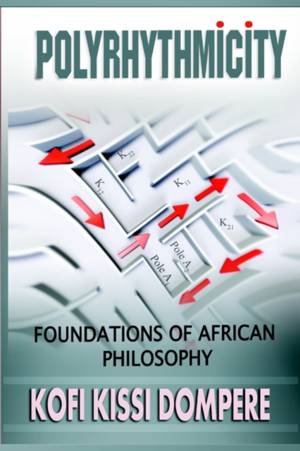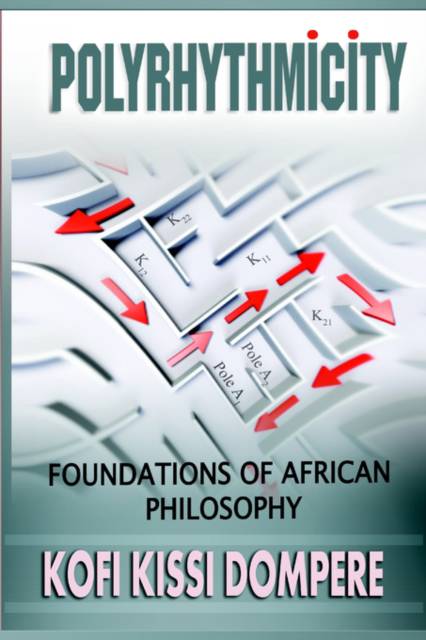
Bedankt voor het vertrouwen het afgelopen jaar! Om jou te bedanken bieden we GRATIS verzending (in België) aan op alles gedurende de hele maand januari.
- Afhalen na 1 uur in een winkel met voorraad
- In januari gratis thuislevering in België
- Ruim aanbod met 7 miljoen producten
Bedankt voor het vertrouwen het afgelopen jaar! Om jou te bedanken bieden we GRATIS verzending (in België) aan op alles gedurende de hele maand januari.
- Afhalen na 1 uur in een winkel met voorraad
- In januari gratis thuislevering in België
- Ruim aanbod met 7 miljoen producten
Zoeken
€ 96,45
+ 192 punten
Omschrijving
The modern works on African philosophy have not been integrated and fully connected to Africa's antiquity in order to provide a foundational unity for further intellectual refinement. The philosophical dimensions of humanism, Nkrumah's concept of categorial conversion, African concepts of duality, polarity, unity, continual creation and democratic ideals must be shown their African-centered origins. In considering African philosophy, there arise conceptual and logical gaps that require the development of fundamental cognitive unity from the available data with judicious interpretation and restructuring in order to define the parameters of African philosophical unity that will allow these gaps to be closed for intellectual continuity. This monograph is devoted to the establishment of the foundations for the development of Africa's intellectual continuity and cognitive unity from antiquity to the present. Its main premise is that there is African philosophy with its own method of reasoning, analysis and synthesis. The monograph initiates self-contained philosophical foundations for African intellectual unity that is required to support African cultural unity, African personality, African essence and humanism needed for the creation of Greater Africa that is implied by African Union. These philosophical foundations, it is argued, formed the thinking system for Africa's social construct, law, economics, politics and governance of empires, kingdoms and social units that have come to pass. These philosophical foundations constitute the thinking system that must guide current and future Africa's socioeconomic dynamics. The monograph discusses also Africa's contributions to the global intellectual heritage by showing the relationships among foundations of African philosophical tradition and other philosophical systems that lead to rediviva Africana. It presents the principles of cognitive unity and continuity on the held position that without clearly developed Africa's philosophical foundations from its antiquity providing intellectual unity and cognitive continuity complete emancipation of Africa will be a mere mimicking of intellectual faults of other nations and philosophical systems. The research by African scholars and others on specific philosophical thoughts from different areas of Africa is useful materials that must be integrated into cognitive unity by accepting those that fit and rejecting those that do not fit by a defined logical process. Mindful of this, a case is thus made in this monograph for African cognitive unity and supporting reasoning methods. The system of ideas and perceptive interpretations of relevant data is, here, referred to as Africentricity, and its philosophical foundations that project thought as polyrhythmicity while the study of logic of reasoning about methodological and epistemic problems of polyrhythmicity and Africentricity is referred to as polyrhythmics. On practical level these philosophical foundations are shown to support the conceptual basis of Nguzo Saba (the Seven Principles of Kwanzaa). The monograph would be of interest to philosophers in general, professionals, researchers and students engaged in African philosophy, African studies, Black studies, socio-political philosophy and those interested in knowing the thinking system on the basis of which African essence arises and African social formations were constructed and governed from antiquity. _______________________ Kofi Kissi Dompere is a professor of economics at Howard University, USA. He has authored a number of scientific and scholarly works in economics, philosophy and decision theory. He is the producer and host of a radio program "African Rhythms and Extensions" on WPFW 89.3fm in Washington D.C., USA.
Specificaties
Betrokkenen
- Auteur(s):
- Uitgeverij:
Inhoud
- Aantal bladzijden:
- 312
- Taal:
- Engels
Eigenschappen
- Productcode (EAN):
- 9781905068197
- Verschijningsdatum:
- 31/03/2006
- Uitvoering:
- Hardcover
- Formaat:
- Genaaid
- Afmetingen:
- 152 mm x 229 mm
- Gewicht:
- 612 g

Alleen bij Standaard Boekhandel
+ 192 punten op je klantenkaart van Standaard Boekhandel
Beoordelingen
We publiceren alleen reviews die voldoen aan de voorwaarden voor reviews. Bekijk onze voorwaarden voor reviews.









